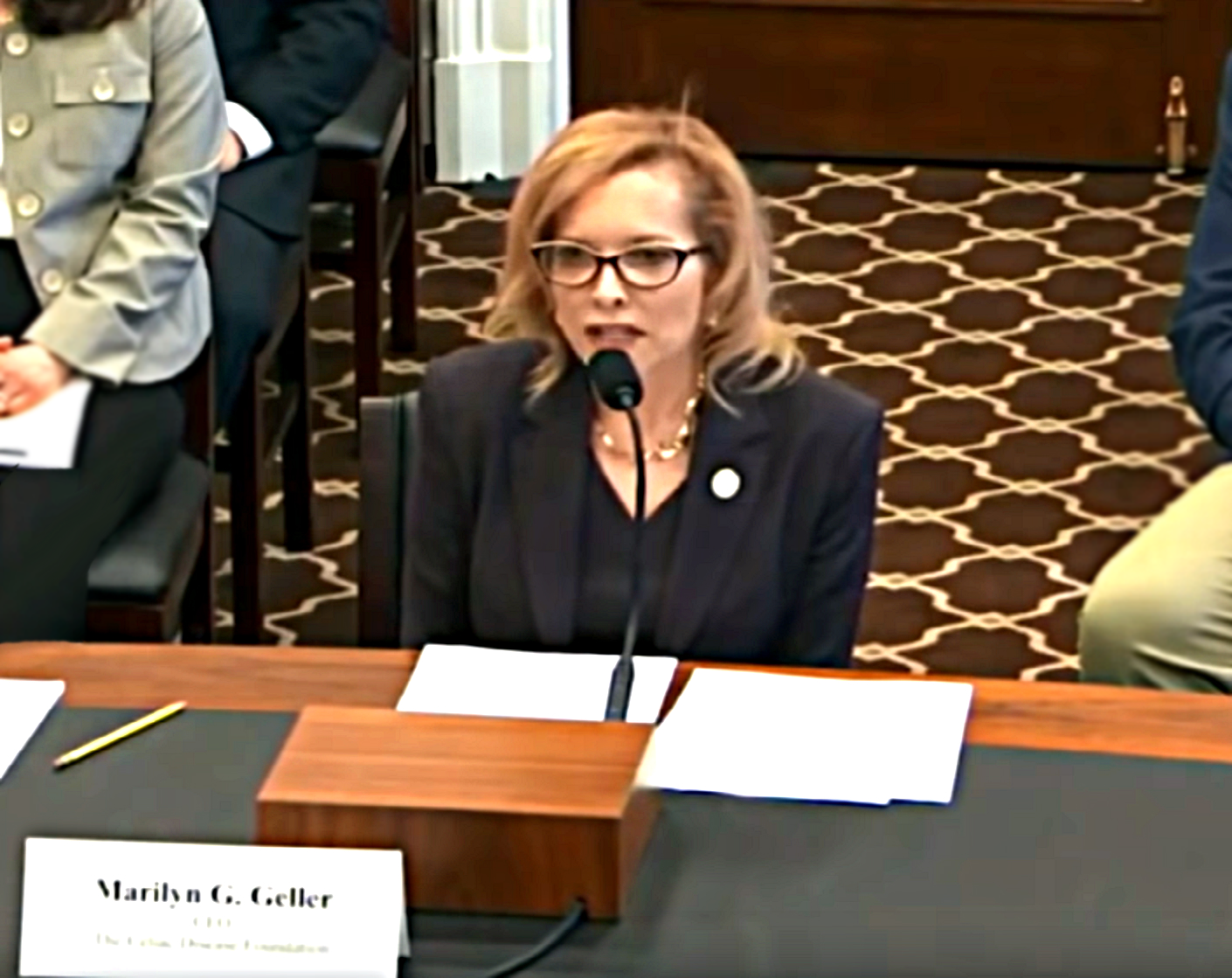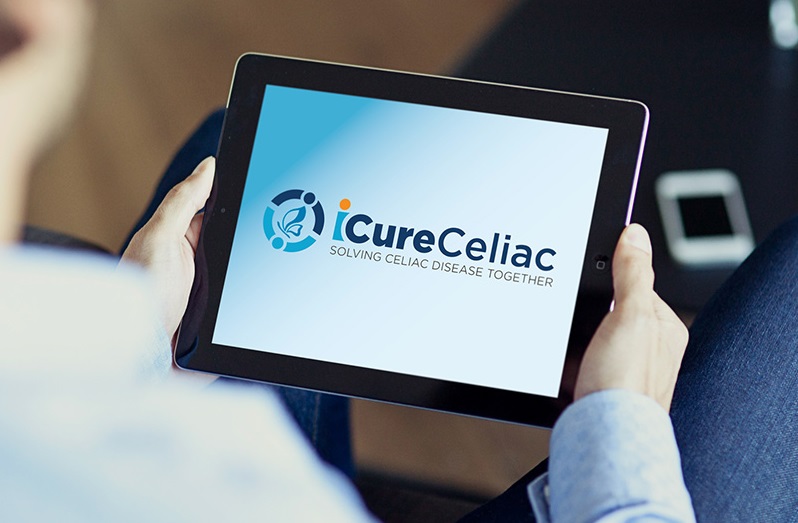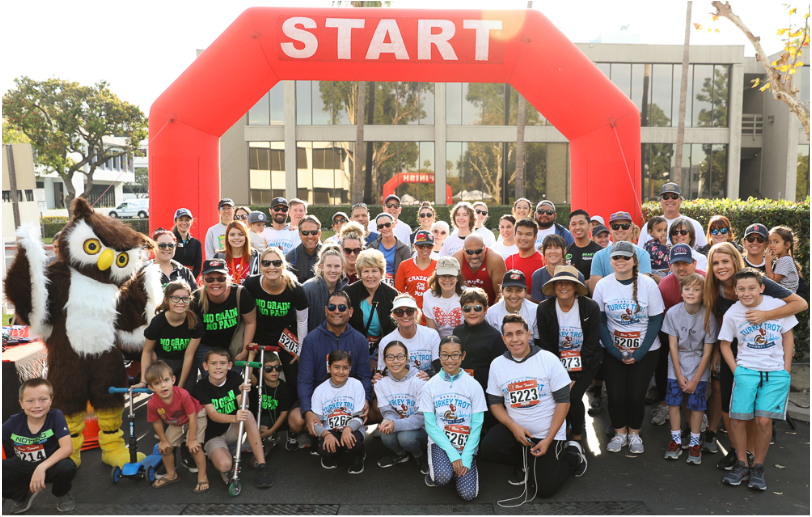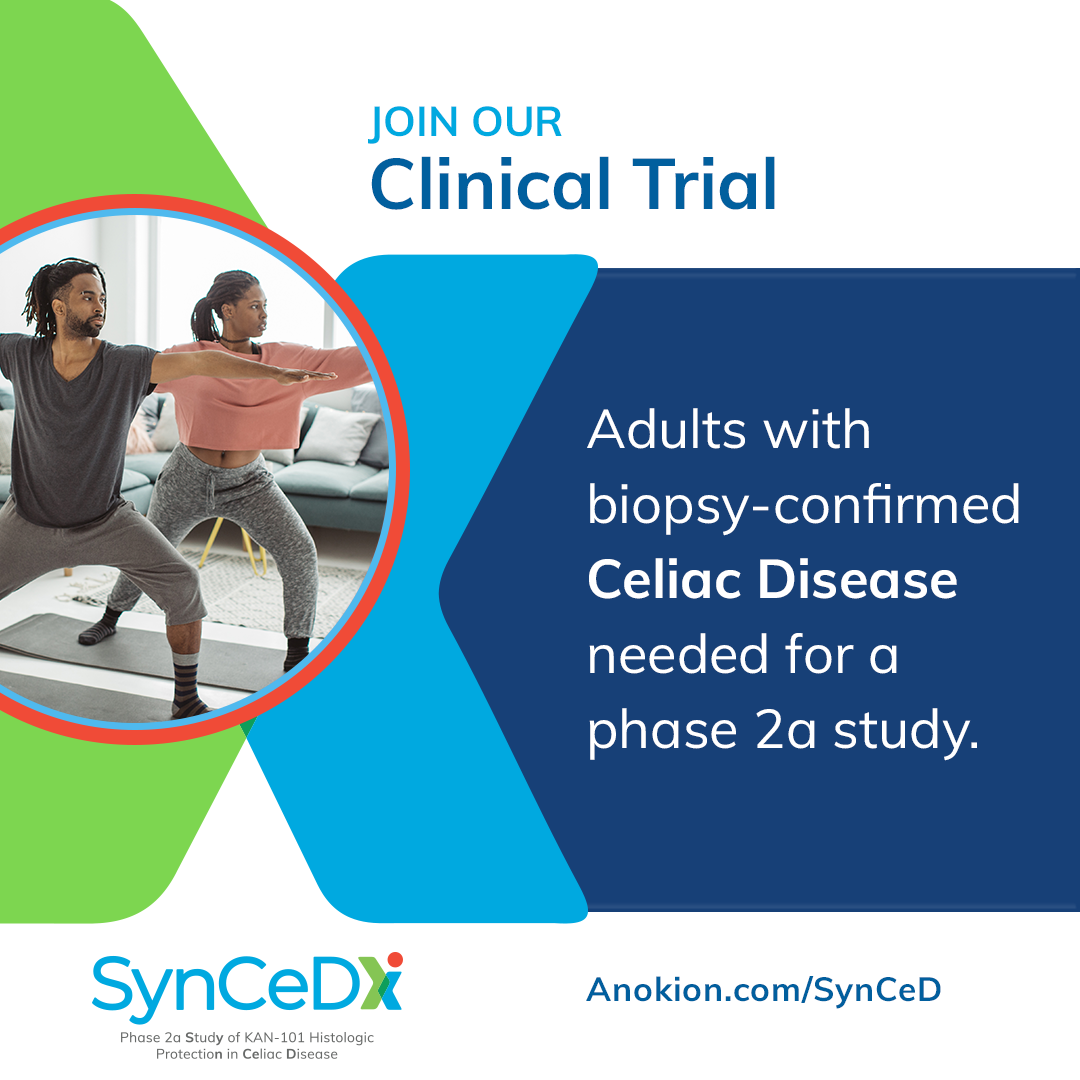2019 Year in Review
For decades, the celiac disease community has been told that the pain, the suffering, the fog, the depression, and the missed days of work and school were our fault because we failed to adhere to the diet—or in the case of a parent or caregiver, failed to enforce strict adherence by a child or loved one. For just as long, we have known that we were not the problem.
Finally, thanks to research and persistence, key decision-makers in government, biopharma, and academic research centers are starting to understand that celiac disease is a serious autoimmune disease and that the gluten-free diet is not enough. Our efforts to accelerate research for better treatments and a cure are increasingly gaining traction. Together, let us look back at what we have accomplished over the past year and look forward to what is next.
Advocacy
In May 2019, the U.S. House Appropriations Subcommittee on Labor, Health and Human Services approved report language in the 2020 appropriations bill that includes the following passage written by the Celiac Disease Foundation:
Celiac Disease—The Committee encourages NIH to devote sufficient, focused research to the study of Celiac disease, including the autoimmune causation underpinning the affliction. Today, the only known treatment for this disease is a gluten-free diet; but, recent public and private sector research has revealed that such a “treatment” is insufficient for many who suffer from Celiac disease. Therefore, the Committee urges NIAID [National Institute of Allergies and Infectious Diseases] to support new research efforts toward causation and ultimately, a cure of this disease. NIAID is encouraged to coordinate with other Institutes and Centers as appropriate and to submit its plan for coordination and execution of this research to the Committee on Appropriations no later than 90 days after enactment of this Act.
For the celiac community, having this language included in the NIH appropriations bill is a monumental accomplishment. This is the first time celiac disease has ever been specifically noted in an NIH appropriations bill. It is the first time that Congress has encouraged the NIH to research celiac disease. The NIH report language was a product of dedicated advocacy by Celiac Disease Foundation Policy Advisor Ben Nicholson and of the compelling testimony of CEO Marilyn G. Geller before the Subcommittee on April 9, 2019. To support the testimony, community members sent in more than 800 heartfelt stories of their struggles with celiac disease and its impact. In support of these efforts, the Senate added its own report language requiring
that NIDDK dedicate sufficient resources to find a cure for celiac disease. After this first wave of success, and a careful assessment of what is needed to maintain this momentum, we have retained Baker Donelson to advocate on behalf of the celiac community in Washington, DC.
In another major advocacy initiative, Rep. Tim Ryan (D-OH) and Rep. Tom Cole (R-OK) introduced the Gluten in Medicine Disclosure Act, with the support of the Celiac Disease Foundation. Through the efforts of Policy Advisor Ben Nicholson, and the more than 22,000 emails sent to Congress by the celiac community in response to our call-to-action, 45 cosponsors have been secured. Additional advocacy efforts include the appointment of CEO
Marilyn Geller to the Patient-Centered Outcomes Research Institute (PCORI) National Patient Engagement Advisory Panel and the continued growth of our Patient Advocacy Program. Moving forward into 2020, we will continue to push our advocacy efforts to give the celiac disease community a consistent and effective voice in Washington, DC.
Research
We created the Young Investigator Research Grant Award (YIA) in 2017 at the request of leading celiac disease researchers who were concerned that, because of lack of funding, the best and brightest young biomedical researchers were abandoning celiac disease research. In 2019, we dramatically increased our funding of the YIA and awarded three grants totaling more than $500,000 to Drs. Benjamin Lebwohl, Jocelyn Silvester and Valerie Abadie, researchers at the nation’s premier celiac disease academic research centers.
These grants were only a portion of our expansive research portfolio in 2019. We continue to develop tools and strategies to lower the cost of drug development and improve diagnosis. This is precisely why we created iCureCeliac® in 2015. It is still the largest patient-driven celiac disease registry in the world, and serves as a core resource for celiac disease researchers to study the causes and impact of celiac disease, and to document the demand for better treatments. iCureCeliac® findings were presented by CEO Marilyn Geller at Digestive Disease Week and at the 18th International Celiac Disease Symposium. We continued expanding our registry in 2019 with the release of our new, more intuitive and mobile-friendly software platform, and iQualifyCeliac, our proprietary software to match patients with clinical trial and study opportunities. Through iQualifyCeliac, we have engaged over 7,300 celiac patients, and supported recruitment for 11 clinical trials and studies to-date. In addition to funding research and medical education conferences nationwide, we also funded our first international study, a groundbreaking hackathon in Israel where a new, AI-driven clinical decision support tool for early diagnosis of celiac disease was developed.
Education
The presence of gluten in schools poses a potentially serious health concern for students with celiac disease, both in long-term health complications and in debilitating acute symptoms at the time of exposure, seriously inhibiting a student’s ability to succeed at school. In addition, children with celiac disease can feel excluded or ashamed when gluten-containing products like birthday treats or sport team snacks are brought into the school to share. As the number of students with celiac disease continues to grow, there is an increased need to educate school administ
rators and staff about how to care for them effectively. In partnership with NASPGHAN, Children’s National Health System (CNHS), and a stakeholder group of 40, including the nation’s school associations and pediatric celiac disease programs, the Celiac Disease Foundation launched the Celiac Disease Management Plan for Schools Initiative to develop national recommendations and training for schools and families based upon evidence-informed data with an anticipated publication date of January 2020.
Celiac.org remains the single most trusted source of celiac disease information on the web. In 2019, more than 6.5 million visitors came to the site seeking information about celiac disease diagnosis, symptom management, news, research, and the gluten-free diet.
In June 2019, the Celiac Disease Foundation hosted its 14th annual Gluten-Free EXPO at the Pasadena Convention Center. Year after year, the CDF EXPO is a success story, bringing together thousands of people facing similar struggles, presenting new and safe brands, and educating the community about the critical need for celiac disease research to better understand the complex ways this disease impacts the lives of patients and caretakers.
The Celiac Disease Foundation continues to educate our nation’s healthcare providers through the NASPGHAN Clinical Guide for Pediatric Celiac Disease, the Celiac Disease and Psychological Health Program, and the Celiac Disease Residency Training Program at the Keck School of Medicine of USC.
Team Gluten-Free
Team Gluten-Free (TGF) is our community, peer-to-peer fundraising program. In 2019, passionate changemakers raised more than $200,000 through expanding the Celiac Disease Foundation Turkey Trot 5K Fun Run/Walk to four locations nationwide, and hosting and participating in events, including golf tournaments, basketball tournaments, spa days, runs, bake sales, lemonade stands, the 2019 TCS New York City Marathon, and so many more. We are proud of our TGF members for leading and empowering the celiac community, and their notable commitment to raising critical funds for celiac disease research, education, and advocacy.
Student Ambassador Program
Our Student Ambassador Program supports children, teens, and young adults as they confidently raise awareness and educate their peers about celiac disease in schools and communities. This year, more than 100 Student Ambassadors strengthened our outreach by making classroom presentations, creating online gluten-free bakeries, writing books and articles, distributing brochures to peers, doctors’ offices, and food banks, hosting educational events at places such as cycling class, yoga class, Chuck E. Cheese, and many more. Educating future generations about the seriousness of celiac disease is a critical component to accelerating diagnosis, treatments, and a cure, and we are deeply appreciative of our Student Ambassadors and their families’ tremendous commitment and efforts.
Eat! Gluten-Free
The Celiac Disease Foundation provides our community with innovative tools and technologies, such as Eat! Gluten-Free, to stay up to date on the latest Foundation news, celiac disease research and information, gluten-free products, and more. Launched in 2015, Eat! Gluten-Free is a one-stop destination for all things gluten-free, and the 2019 update features a more robust, user-friendly app and desktop version. This new version includes an expanded recipe section, improved news feed, and hundreds of new products. Eat! Gluten-Free is free to download on your desktop or as an app for iPhone and Android.




